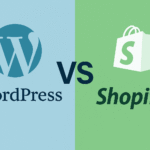Server-side development always requires a robust language and framework that can cater to modern demands. Backend developers have to face much more issues while developing any web app. Choosing the right language for the same is not easy. It depends on the type of project, business, target audience, and a lot more. PHP and Node.js both are considered the best for backend development. Both have importance and features of their own and the choice of the developers depends according to the expertise and the required functionalities. Although PHP has been in the run for a time now, Node.js is new for developers but still, it has made its place. The survey conducted by Stackoverflow in 2021 shows that Node.js has 33.91 % of votes and PHP has 21.98% of votes in the category of most commonly used web programming languages. The community of PHP is quite large as compared to that of Node.js, yet Node.js Development is a preferred one.
PHP and Node.js, both are wonderful languages, here’s a comparison between the two to help you choose one considering all the programming features:
Coding and Syntax
Node.js
The entire development environment of Node.js is developed with just one language so the developers do not have to remember the syntax of many other languages. This makes coding quite easier in Node.js.
Node.js may require more lines of code than PHP for the same functions, so this may appear more complex but the use of just one language diminishes this con.
PHP
PHP, when compared to Node.js based on coding and syntax, may need lesser lines of code but the developers must be proficient in other technologies too such as -Linux, My SQL, HTTP server, etc.
This comparison shows that Node.js is better to do with because it does not allow any complexity but if your backend is already on PHP then with the above-mentioned technologies you can get a robust server-side built in no time.
Server-side coding
Node.js
Node.js is beneficial because it uses the entire logic of the backend in server-side coding. It transfers the entire workload to the server-side hence making it easy for smartphones users to access the web apps.
PHP
The static web pages that require client requests and load without depending on the processing power of the user’s device for them PHP is the best option.
Performing speed
Node.js
The better the execution speed the better and faster is the task completion. Node.js is asynchronous and due to this feature, its execution speed is faster. Asynchronous means, Node.js does not need to wait for the execution of one module before loading the other one. This feature saves a lot of time during development.
PHP
PHP is older than Node.js therefore it follows the concept of synchronicity. This means until the execution of one module is not over the other one cannot be loaded. Hence, leading to slower performance and speed.
Concurrency
Node.js
Concurrency is associated with the asynchronous nature of the code. The performance of the program is calculated based on how the code is written in both languages. In the case of Node.js, the asynchronous code and JavaScript V8 engine make it a high-performing language. The execution of the code is order-independent, also known as concurrent. Concurrency means different modules run at a given time but not simultaneously. Using the same resource and environment the modules in Node.js execute faster with different start and end times.
PHP
PHP modules do not follow concurrency. One module/process is first completed and then the other begins. Here the execution is not concurrent, therefore affecting the speed and performance. But in case the business has its app already built on PHP and does not plan to migrate, PHP can be combined with HHVM Virtual Machine to execute PHP web apps. This combination can improve execution time by 75%.
Frameworks
Node.js
Node.js has been in the market after PHP still has very competitive frameworks such as Meteor, Derby, Express, and Sails. The features of Node.js are enhanced with these frameworks. Although Node.js has been for a shorter duration in the web development market as compared to PHP, still it has seen a rapid expansion of its libraries. These frameworks reduce the extent of resources used and the efforts made during web development.
PHP
PHP has a way long list of frameworks supporting it as it is here since 1995. The frameworks, libraries, and communities of PHP are already established and have their niche markets. These frameworks include CakePHP, Codeigniter, Laravel, Phalcon, and more.
Database
Node.js
This difference is to check how seamlessly and easily any technology can connect with the database. Today is the time of NoSQL databases and Node.js has grown with these databases. Not Only SQL or NoSQL databases allow data storage in documents, key-pairs, and even graphs formats.
They support all forms of data structures and are very easy for the developers to work with.
Node.js works well and integrates with all types of databases. It even works properly with NoSQL databases like MongoDB and CouchDB and even can integrate with graph databases and SQL databases.
PHP
PHP’s origin was way before NoSQL databases, it is specially designed to work with relational and conventional databases like MySQL and MariaDB. This does not mean it cannot at all integrate with NoSQL databases. Developers can import libraries to NoSQL databases but the process needs a lot of expertise and is time-consuming.
Community
Node.js
Node.js is newer than PHP and therefore its community may be small but it offers such features that are needed by the developers today. Maximum projects delivered by the Node.js community are about adding more functionalities to Node.js. The projects completed here are interesting and always adding up to the community.
PHP
PHP on the other hand has many more projects than Node.js and its community is no doubt even bigger. The only issue is that now PHP developers do not get as interesting projects as in Node.js. The new projects developed by the community do not add to the functionalities or offer any special method. Many similar projects already exist if one looks out for them.
Conclusion
The article above specifically proves that Node.js is winning the race but in some situations or projects cannot handle the migration or the developers feel PHP would work well. The choice completely depends on the business requirements and the type of project. It’s better to seek expert advice while making the decision.
Node.js is no doubt the first option for server-side coding as you see it in various studies and surveys too. Both the languages offer good features but what is required for today’s customers matters the most.









